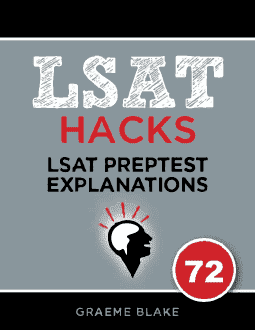QUESTION TEXT: It has been hypothesized that our solar system was…
QUESTION TYPE: Necessary Assumption
CONCLUSION: The hypothesis that our solar system formed from a supernova is wrong.
REASONING: If we formed from a supernova, iron-60 would have been around in the early years of our solar system. But we didn’t find iron-60 in meteorites that formed in the early years of our solar system.
ANALYSIS: The stimulus said there would have been iron-60 present in the early solar system. So we can say “no iron-60 ➞ no supernova”
But the argument gives different evidence. The argument didn’t say there was no iron-60. It says we didn’t find iron-60, in a meteorite. There are two flaws:
- Maybe iron-60 existed, but we just failed to find it.
- Maybe iron-60 could have existed even if it didn’t leave traces in meteorites.
___________
- This weakens the argument. It shows that meteorites don’t give us a good view of what was in supernovas.
Negation: Meteorites contain exact what was produced by supernovas. - Who cares about other solar systems? We’re talking about our own solar system.
- Who cares about other forms of iron? The evidence is only about iron-60.
- This isn’t relevant. The stimulus says that a supernova would have led to iron-60 early in the solar system’s history. Meteorites that formed late in the solar systems history can’t tell us about the early history of the solar system. Maybe the iron-60 in those meteorites only appeared in the later years of the solar system.
- CORRECT. This is essential to the argument. If you negate it, then it’s possible that iron-60 existed in the early years of the solar system, even though we didn’t find it.
Negation: We might not have found iron-60 in the meteorites, even if there had been iron-60 in the early years of the solar system.


Leave a Reply